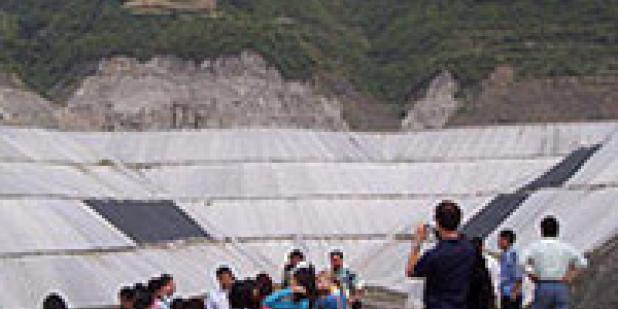Join us for a free one-day workshop for educators at the Japanese American National Museum, hosted by the USC U.S.-China Institute and the National Consortium for Teaching about Asia. This workshop will include a guided tour of the beloved exhibition Common Ground: The Heart of Community, slated to close permanently in January 2025. Following the tour, learn strategies for engaging students in the primary source artifacts, images, and documents found in JANM’s vast collection and discover classroom-ready resources to support teaching and learning about the Japanese American experience.
China: Students' Development Lab Spotlights Bank-funded Projects in Chongqing
June 26, 2006 - With support from the World Bank Office, Beijing, the China Development Lab recently conducted a dual-city case study on Bank-funded urban projects in such secondary cities in Chongqing municipality.

This article was originally published by The World Bank
The Lab is a collaborative project to investigate urbanization between the Peking University's (PKU's) School of Government; the University of Southern California's (USC's) School of Policy, Planning, and Development; and the Chongqing Technology and Business University (CTBU). Taught by USC Professor Eric J. Heikkila, the China Development Lab is now in its third year.
Assessing the Impact of Bank Projects
Organized into two city teams comprising economic, environmental, and social divisions, graduate students from the three schools visited Bank project sites and relevant infrastructure sites of significance to assess the projects' impact on urbanization.
In Bishan, the first group of students visited a river embankment project in its completed, ongoing, and future designated sections along with a water treatment plant site, both financed under the Chongqing Urban Environment Project.
In Qianjiang, the second group of students focused on a planned road to link its newly constructed train station with its soon-to-be completed airport, financed under the Chongqing Small Cities Project.
In a simulated consulting capacity, students were tasked to deliver a set of recommendations to the World Bank for future funding priorities in the two case cities.
Background Briefing
Prior to the students' fieldwork, Thomas Zearley, Bert Hofman and Andres Liebenthal, World Bank sector coordinators in Beijing provided the students with background on China's overall development conditions. Regional development authorities in Chongqing from CTBU and the Chongqing Project Management Office supplemented the national perspective with a briefing on regional conditions.
Once in the field, students met with senior representatives of various government departments and informally engaged with local residents to explore local conditions and identify a prioritized list of city needs.
Their innovative collaboration bridged divides between regional and national universities in China as much as it linked overseas academic communities to their Chinese counterparts.
Field Work Findings
At the end of the field work, students pooled their findings into a single report on development priorities for Chongqing Municipality based on their two case studies. At CTBU's GDLN facility, students presented their findings in a videoconference that linked the Lab to audiences and panelists assembled to critique the report at USC in Los Angeles and at the Bank Office in Beijing.
The team's report targeted capacity building, specifically in terms of vocational training for workers in its food processing industries and the promotion of eco-tourism for Qianjiang, an ethnic minority district in Chongqing. In Bishan the report recommended resources be allocated to wastewater treatment and water supply to keep up with its projected growth.
The student report identified these as the most pressing developmental needs among an array of priorities in the two smaller cities.
A Learning Experience for All
Students marveled at the rapidity of transformation in China's western small and medium-sized cities. "The efficiency of the process is impressive," noted participating USC student Vivek Munipalle, who frequently compared conditions he observed in Chongqing with those of his home country, India.
Of greater surprise to Zhang Xuzhu of CTBU was the amount that students learned from one another. PKU participant Xu Shanshan agreed with Zhang, citing the research methods and team organization as among the USC students' most valuable contributions.
For their own part, USC participants repeatedly acknowledged the usefulness of the disciplinary training in regional economics and environmental sciences that their Chinese counterparts brought to the project. CTBU Environmental Studies student Wang Ying, for example, supplied her teammates with an assessment of a city dump's impact on groundwater and neighboring residential communities.
Featured Articles
Please join us for the Grad Mixer! Hosted by USC Annenberg Office of International Affairs, Enjoy food, drink and conversation with fellow students across USC Annenberg. Graduate students from any field are welcome to join, so it is a great opportunity to meet fellow students with IR/foreign policy-related research topics and interests.
RSVP link: https://forms.gle/1zer188RE9dCS6Ho6
Events
Hosted by USC Annenberg Office of International Affairs, enjoy food, drink and conversation with fellow international students.
Join us for an in-person conversation on Thursday, November 7th at 4pm with author David M. Lampton as he discusses his new book, Living U.S.-China Relations: From Cold War to Cold War. The book examines the history of U.S.-China relations across eight U.S. presidential administrations.




